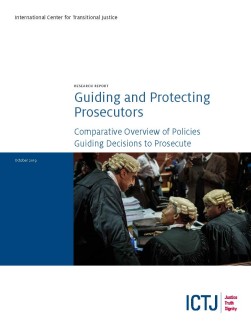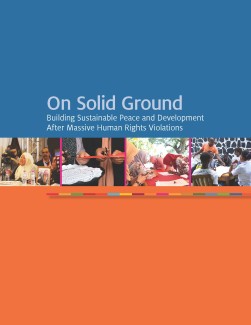We work side by side with victims to obtain acknowledgment and redress for massive human rights violations, hold those responsible to account, reform and build democratic institutions, and prevent the recurrence of violence or repression.
Resource Library
The Resource Library stores all of ICTJ’s published works since 2001 to the present, grouped by category and searchable by key word, country, issue, language, and more.
We are continually adding new content from our archives, especially our Multimedia content. Check back regularly to explore newly added videos, photo galleries, and audio products.
We are continually adding new content from our archives, especially our Multimedia content. Check back regularly to explore newly added videos, photo galleries, and audio products.
















































